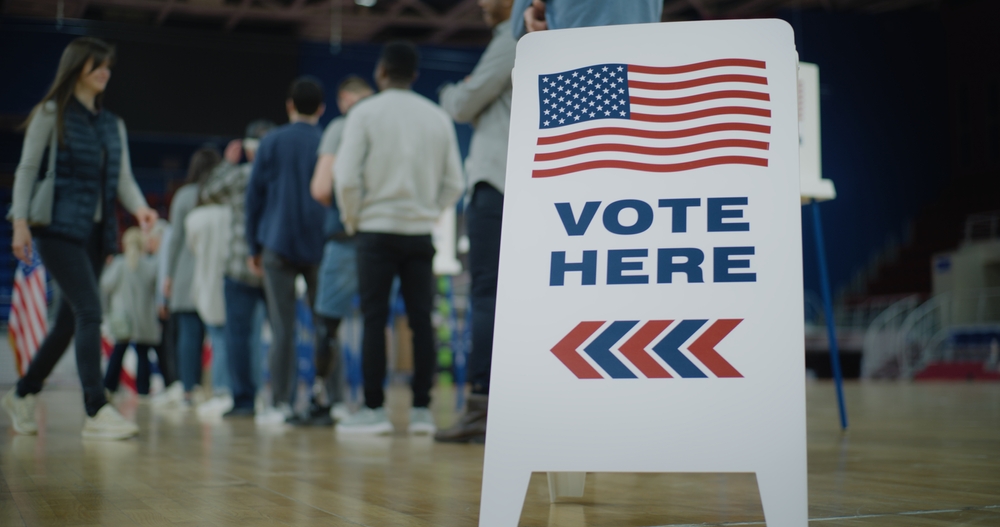(Texas Scorecard) – Texas representatives have considered a measure in committee that would allow cell phones to be used throughout polling locations, except at actual voting booths.
State law currently prohibits the use of cell phones and other wireless devices “within 100 feet” of a voting station, which is defined as a voting booth or other place where voters mark their ballots or indicate their votes.
In some cases, the 100-foot prohibition applies to long lines of would-be voters standing outside of polling locations for several hours.
However, a proposal by State Rep. Hillary Hickland (R-Belton), House Bill 3909, would strike the 100-foot language and only prohibit the use of cell phones or wireless devices inside the voting station itself.
“The prohibition on phone use outside of the voting station is unnecessary and proves difficult and time-consuming for election workers to enforce,” Hickland told members of the House Elections Committee on Thursday.
“HB 3909 amends the election code by removing the current 100-foot boundary for use of a wireless device, and instead requires that a person may not use a wireless communication device inside a voting station,” she added.
Hickland said that she expects there to be a committee substitute coming soon, further changing the language to explicitly ban wireless devices from any room where voting is taking place.
She also said that, after consulting with the election officials, the future committee substitute will create exceptions for those with disabilities and require signage at polling locations outlining the rules surrounding wireless devices.
State Rep. Richard Peña Raymond (D-Laredo) told Hickland that he has received photos from constituents showing how they voted. State Rep. Matt Shaheen (R-Plano) said he has seen individuals post on social media that they voted for him.
“So I wonder, under current law, [if] they really weren’t supposed to be doing that,” deliberated Raymond, adding that he agreed the 100-foot rule was “too much.”
State Rep. Carrie Isaac (R-Wimberley) questioned whether the 100-foot requirement was originally put in place to prevent potential electrical or online manipulation of voting devices.
“When I read it, I thought, ‘I wonder if this is to protect our machines from a wireless device connecting to the machines,’” recalled Isaac.
While voting machines in Texas are not connected to the internet, electronic poll books containing a list of registered voters are—a point members of the committee acknowledged on Thursday.
Jeff Howard, vice chairman of the Bell County Republican Party and an election judge, testified in favor of HB 3909. He specifically pointed out issues surrounding enforcing the current law.
“Resources are better spent inside the polling sites and enforcing those rules, and polling sites,” argued Howard. “This bill right here would bring the code up to speed with the realities of what’s actually happening on the ground.”
Andrew Eller, a member of the Republican Party of Texas Executive Committee, testified against HB 3909. He expressed doubt that allowing phone use would make it any easier for election workers to prevent electioneering or illicit recordings.
“I’ve been a poll site judge for over 30 years. … But I did have problems with people trying to bring in cell phones, trying to take videos, those kinds of things,” said Eller.
While Eller said he currently opposes Hickland’s measure, he added that he might be open to supporting the future committee substitute she previewed.
The measure was left pending in committee.


